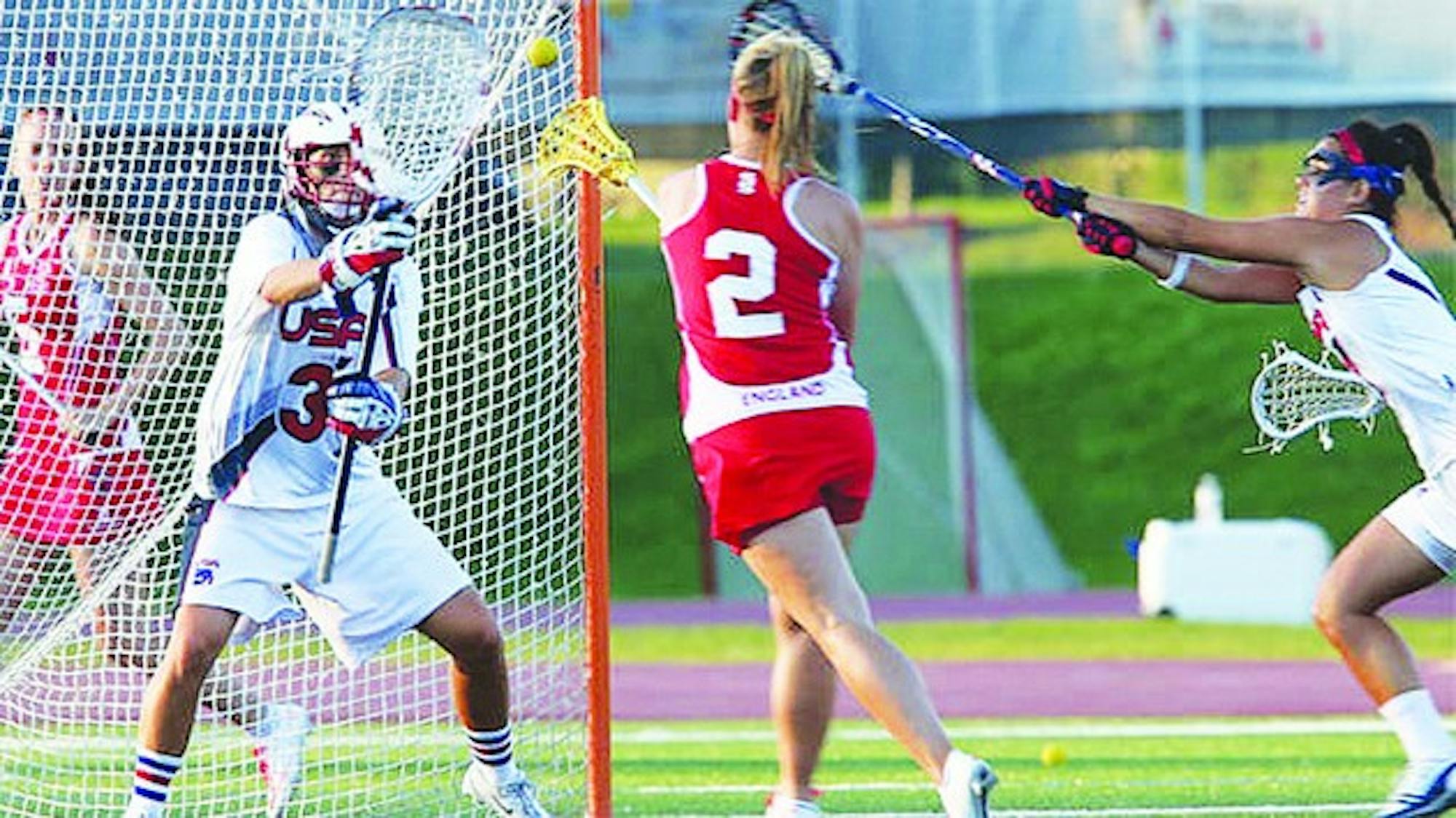Led on its defensive side by Wills, the U.S. topped competitors from England, Wales, Australia, the Haudenosaunee Nation and Canada to garner the gold medal. The team faced England and Canada twice before securing its second straight title.
Wills played in the previous World Cup as well, but said the 2009 team comprised mainly newcomers, who were "in awe of everything." This year's experienced roster was better prepared for the competition.
"This time around, the majority of the team was returners, and we were more comfortable in what we expected to happen," she said.
Wills said the highlight of her World Cup experience was getting to know the women on her team.
"I think the teammates that I have make the experience what it is," she said. "I think we were really focused on showing everyone what we could do on the field, but I think the connections that we had off the field are what let us do what we do on the field."
Wills credited Dartmouth head coach Amy Patton with helping her develop her technical skills.
"Amy is a really, really smart coach just all around, but she also has a love for teaching goalies," she said. "She definitely helped me refine the basics and technique and all the in-cage stuff, and really focused on the little things, which is key when you're a goalie."
Wills added that Patton gave her the "green light" to do more work outside the goalie cage, which helped her become a rounded, effective player.
Patton called Wills the world's best goalkeeper, in part because she has developed skills that extend beyond the goal's crease.
"She unquestionably is not only good in the cage, but is incredibly athletic and can do a lot outside the cage," she said. "I think that really sets her apart from other keepers."
Israel's team garnered a 5-3 record in the World Cup tournament before forfeiting to the Haudenosaunee Nation in the consolation semifinal round for seventh place. Szafman said that while the Federation of International Lacrosse was able to avoid scheduling the team's games on Saturdays in early rounds of the tournament, organizers were not able to do so in later rounds.
"I think mostly we all came into this very much on the same page, like we will absolutely not play on Saturdays," she said. "We were hoping obviously that they would find some way."
Szafman said she hopes the team's decision will "spark conversation" and help reduce obstacles Jewish athletes encounter in the future. It is currently impossible for a Jewish athlete to have a successful athletic career while also observing Sabbath, she said.
Szafman said her time as goalie at Dartmouth taught her the skills she needed to compete at the World Cup.
"The whole thing of every person on the team contributing every day to the team's success is something huge I learned from Dartmouth," she said.
Szafman said her favorite part of the World Cup experience was forming fast bonds with her new teammates. "We got so united in the sense of representing our country on the field and playing for something that was so much bigger than ourselves," she said.
Patton said both Wills and Szafman displayed strong, positive attitudes on and off the field playing for Dartmouth.
"The thing I can say about both of them without any hesitation is that they are just really hard workers, beyond what you would normally consider hard work," she said.




